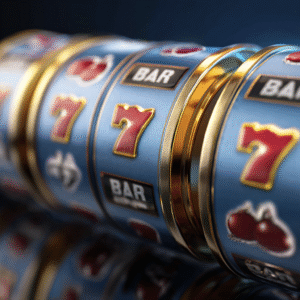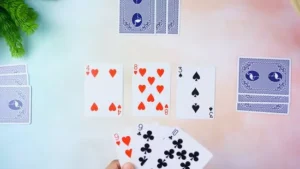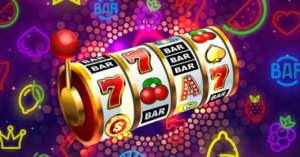
The Path to Becoming a Great Poker Player: Priceless Insights from Daniel Negreanu
Poker isn’t just a game of cards; it’s a strategic battleground where intellect, patience, and emotional control reign supreme. For anyone who’s ever sat down at a poker table, it’s clear that poker is not a game that can be learned in a day. It’s not a board game where you simply read the rules and start playing with minimal understanding. The stakes are high, the competition fierce, and the learning curve steep. Few people truly dabble in poker. Either they don’t play at all, or they dive headfirst, completely committed to mastering every nuance of the game. And once you start to understand the intricacies, poker has a way of drawing you in, becoming not just a hobby, but a lifelong obsession.
This is especially true for world-class players like Daniel Negreanu, one of the most successful and well-known professional poker players of all time. With a career spanning decades, Negreanu has carved out a reputation as not just a brilliant player, but also a teacher of the game. His journey to the top of the poker world didn’t happen by accident. It was built through years of study, practice, and a deep understanding of what it truly takes to be successful in the world of high-stakes poker.
If you’re serious about becoming a good poker player, it’s important to recognize that poker is more than just luck—it’s about understanding the odds, reading your opponents, knowing when to push and when to fold, and maintaining a razor-sharp focus even under immense pressure. Poker, in its highest forms, is an art and a science, a blend of intuition and logic. The road to mastery is long and challenging, but the thrill, suspense, and rewards make it incredibly worthwhile.
One of the key lessons Negreanu emphasizes is that poker requires a constant commitment to learning. This isn’t a game where you can simply “wing it” and expect to come out ahead. The game evolves continuously, and so must the player. It’s not enough to be a good player today; you need to be a better player tomorrow. The hours of study, experience, and analysis are what separate the novices from the pros. For Daniel, poker is about much more than just sitting at the table and playing hands. It’s about grinding out the hours, analyzing your game, and constantly improving.
A major part of being a great poker player is the ability to stay calm and focused under pressure. The best players don’t just rely on a good hand—they have an entire toolkit of strategies to read their opponents, manage their emotions, and respond dynamically to the ever-changing situation on the table. They are not distracted by bad beats or unfortunate runs of cards; instead, they take those moments as learning opportunities, adjusting their strategies and refining their approach.
Daniel Negreanu’s path to poker mastery was not a linear one. He didn’t become one of the world’s best players overnight. Instead, his journey involved years of hard work both at and away from the poker table. He stresses that studying the game is just as important as playing it. Even for seasoned professionals, dedicating time to study—whether that means watching videos, reading books, or discussing hands with other players—is crucial for improvement. While many players focus on playing as much as they can, Negreanu believes that players who make the effort to study at least 20% of their time—looking at new strategies, dissecting hands, and evaluating what they can do better—will always find themselves ahead of those who simply play without continuously refining their skills.
To become a top-tier poker player, it’s also important to diversify your game. Negreanu advises against limiting yourself to just one format. Tournament poker is vastly different from cash game poker, and excelling in one does not automatically make you proficient in the other. For instance, tournament players tend to focus on short-stack poker, while cash games often require deep-stack strategies. By playing both formats, you’ll develop a more well-rounded skill set and increase your chances of success in a variety of settings. It’s the difference between knowing how to play poker and knowing how to play every kind of poker.
Treating poker like a business is another vital tip from Negreanu. The most successful poker players approach the game with a level of professionalism. This means keeping detailed records of your profits and losses, understanding your playing style, and analyzing statistics to identify areas where you can improve. Just like any entrepreneur, poker pros need to constantly assess their game, find weaknesses, and adapt accordingly. It’s not enough to just play well; you must approach the game with a business mindset, thinking critically about your actions, identifying leaks in your game, and finding ways to plug them.
Moreover, Negreanu advocates for using technology to your advantage. In the digital age, players have an unprecedented opportunity to learn and practice using tools that weren’t available in the past. Online poker offers faster gameplay, which means more hands, more opportunities to learn, and a chance to refine your strategies more quickly. Platforms like Twitch allow players to watch top pros and learn firsthand by observing their techniques and decision-making in real time. Using simulation software can also help you hone your understanding of poker odds, scenarios, and strategies without the pressure of real money on the line. These tools can accelerate your learning and give you the edge over those who rely only on traditional methods.
It’s also essential to learn from other players. Poker is a community, and no one is an island. Whether you’re playing online or in live games, studying the strategies of better players and adopting their techniques is critical to your growth. The more you observe and compare, the more you’ll learn. Identifying gaps in your own play—things you could be doing better—by comparing your results with those of top players can significantly speed up your improvement.
In poker, you will inevitably face bad beats—the times when the cards just don’t go your way, no matter how well you play. The best players are able to evaluate these situations objectively. Instead of blaming bad luck, they reflect on their decision-making process and ask themselves if they could have played the hand differently. Being able to detach emotionally from these setbacks and analyze them critically is crucial. Discussing your bad beats with stronger players can also provide valuable insight into where you may have gone wrong, and help you avoid making the same mistakes in the future.
Lastly, Negreanu emphasizes the importance of physical and mental conditioning. Top poker players don’t just train their minds—they train their bodies as well. Poker tournaments, especially major events like the World Series of Poker, can last for hours or even days. Maintaining focus and energy over long periods is a physical challenge as much as it is a mental one. Physical exercise, a healthy diet, and mindfulness techniques like meditation can help players maintain the stamina necessary to perform at the highest level. Staying calm and preventing tilt (a state of emotional frustration that can lead to poor decision-making) are key components of mental training.
Poker, at its core, is a game of self-mastery. It’s about pushing your limits, managing your emotions, and constantly improving. It requires patience, discipline, and the ability to adapt to changing circumstances. The most successful poker players are those who treat the game with the respect it deserves—committing to continual learning, honing their skills, and cultivating the emotional resilience necessary to handle both the highs and lows.
Becoming a great poker player is not about memorizing a set of rules or relying on luck. It’s about mastering the strategy, reading people, understanding the odds, and developing the psychological resilience to thrive in an environment of uncertainty. It’s a journey that requires dedication, self-awareness, and a relentless desire to improve. And while the road may be long, the rewards—both in terms of personal growth and financial success—are immense.
Where to Next:

The Best Slots to Play Online | Top Games, Apps & Casinos for Big Wins & A Great Gaming Experience
The Best Slots to Play Online | Top Games, Apps & Casinos for Big Wins & A Great Gaming Experience The best slots are the ones that combine exciting gameplay, strong winning potential, smooth performance, and access through reliable casinos that actually pay out. When people search for the best slots, they are usually looking

Top Slots | The Ultimate Guide to Top Slots Online, UK & Mobile Apps
The Ultimate Guide to Top Slots Online, UK & Mobile Apps Top slots are the games that players return to again and again because they combine fun gameplay, strong win potential, and smooth performance across desktop and mobile. When people search for top slots, top slots UK, top slots casino, or top slots online, they

Learn About & How to Play Thirty-One: A Fun and Strategic Card Game you Probably Never Heard Of?
Learn About & How to Play Thirty-One: A Fun and Strategic Card Game You Probably Never Heard Of? Thirty-One, also known as “Scopone” in some regions, is a classic card game with a rich history that dates back around 500 years. It’s still enjoyed in many variations across Europe and is often compared to popular

How Do Free Spins No Deposit Bonuses Work and Where Can You Find Them?
Find Bonuses How Do Free Spins No Deposit Bonuses Work and Where Can You Find Them? If you’re looking to try your luck with a free spins no deposit bonus. The UK casino scene is full of exciting no deposit bonuses, offering players a chance to win big without needing to make any initial deposit.

Play Tight, But Aggressive: Mastering the Art of Poker Strategy
Play Tight, But Aggressive: Mastering the Art of Poker Strategy In the world of Poker, understanding the concept of playing tight, but aggressive is crucial to becoming a successful player. This strategy is often used by experienced professionals to maximize their potential winnings while minimizing their risk. So, what does it mean to “play tight,

How to Play Poker | The Ultimate Guide to Poker Basics
How to Play Poker | The Ultimate Guide to Poker Basics Poker is one of the most popular and thrilling card games globally, enjoyed in casinos, homes, and online platforms. Whether you’re a beginner or looking to sharpen your skills, learning the basics of how to play Poker is essential. In this guide, we’ll walk

What Are Live Slots and How Do They Work? Live Slot Games Explained
Play Live Slots What Are Live Slots and How Do They Work? Live Slot Games Explained Live slots and live casino games are designed to blend the convenience of online play with the atmosphere and authenticity of a real casino floor. Instead of relying entirely on automated visuals and silent gameplay, live games introduce real

What Are Crash Casino Games and How Do You Play Them?
Crash Games What Are Crash Casino Games and How Do You Play Them? Crash casino games are a popular and thrilling type of online gambling that focus on simple yet exciting gameplay. Unlike traditional slot games or table games, crash games are all about timing. Players place bets on a multiplier that increases as the game
FAQ: Becoming A Great Player
1. Who is Daniel Negreanu, and why is he significant in the poker world?
Daniel Negreanu is one of the most successful and respected professional poker players of all time. With multiple World Series of Poker (WSOP) bracelets and millions in tournament winnings, he’s also known for his teaching, deep game knowledge, and engaging personality.
2. Is poker mostly about luck or skill?
While luck plays a short-term role, skill overwhelmingly determines long-term success. The best players consistently win by mastering odds, strategy, psychology, and self-control.
3. What does Negreanu say about the importance of studying poker?
Negreanu emphasizes that poker is a constantly evolving game. Players must dedicate time to study—ideally around 20% of their poker time—to stay competitive and continually improve.
4. How important is emotional control in poker?
Emotional control is critical. The best players stay calm under pressure, avoid tilt, and learn from bad beats instead of letting emotions drive poor decisions.
5. What’s the difference between cash games and tournaments?
Cash games usually involve deeper stacks and steady buy-ins, while tournaments focus more on survival and short-stack play. Mastery of both formats requires different strategies.
6. How can players use technology to improve their game?
Negreanu encourages using tools like simulation software, online poker platforms, hand tracking apps, and watching streams on Twitch to speed up learning and analyze play.
7. What role does physical fitness play in poker?
Poker often involves long hours and high stress. Physical fitness, healthy eating, and mental training (like meditation) help players maintain focus, reduce fatigue, and avoid tilt.
8. How should players deal with bad beats?
Rather than blaming luck, top players evaluate the decisions that led to the outcome. Reviewing hands, discussing with others, and learning from losses is essential for growth.
9. What’s the value of learning from other players?
Poker is a communal game. Observing skilled players, studying their strategies, and discussing hands can significantly accelerate your improvement and expose leaks in your game.
10. How can you treat poker like a business?
Track your profits/losses, analyze your stats, set goals, and review performance regularly. Just like an entrepreneur, you must approach improvement systematically and professionally.
11. Can you become a great poker player without formal training or coaching?
Yes, but it’s harder. Self-study, consistent play, and reflection are critical. However, coaching or structured learning (books, courses, mentorship) can fast-track development.
12. What mindset should aspiring poker players adopt?
Treat poker as a journey of self-mastery. Be disciplined, open to learning, and resilient through both wins and losses. Continuous improvement is the cornerstone of long-term success.
